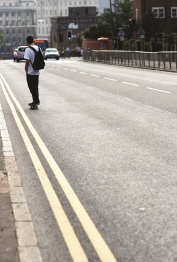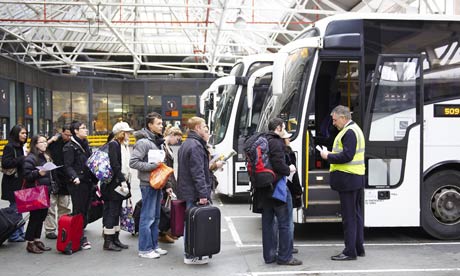Original Article by Chris Chaney, Transition Voice
Culturally we believe that the car is a symbol of personal freedom. But the truth is that car ownership can be oppressive on several levels.
"The road not taken" – Mobility Health: New Directions in Teen Mobility Management
Wednesday, April 11th, 2012 | warai03p | No Comments
Original Article by Chris Chaney, Transition Voice
Culturally we believe that the car is a symbol of personal freedom. But the truth is that car ownership can be oppressive on several levels.
Thursday, March 8th, 2012 | warai03p | No Comments
 The AMHC held its Inaugural Symposium in Dunedin, New Zealand last month, and the international multidisciplinary event was a great success. The event was held in front of a live studio audience and streamed to the Web to viewers all around the world.
The AMHC held its Inaugural Symposium in Dunedin, New Zealand last month, and the international multidisciplinary event was a great success. The event was held in front of a live studio audience and streamed to the Web to viewers all around the world.
The title of the Symposium was “The Road Not Taken – Mobility Health: New Directions in Teen Mobility Management”. In addition to our exceptional international speakers, (see video archives for all presentations), a highlight of the symposium was our final group of speakers – the Teen Panel, facilitated by Arthur Orsini of Urbanthinkers.
All the participants on the panel were non-drivers, aged 17-18, from two schools in Otago (one rural, one urban). They wowed the audience of academics, city council staff, and students with the eloquence with which they discussed their transport experiences and concerns as non-drivers getting around Dunedin. The AMHC will continue to work with this group of students throughout 2012, with the hopes that the students themselves will not only facilitate the Teen Panel for our AMHC 2013 Symposium, but play a large role in the planning of the entire event.
Working directly with teen non-drivers is an untapped resource, as they are extremely capable actors in their community. As one student stated after the Symposium (and others agreed): “It was good to see that people were listening to our discussion … that doesn’t happen very often.”
Monday, February 27th, 2012 | warai03p | No Comments
Gwyn Topham, Tom Midlane and James Brilliant, guardian.co.uk

A generation of students facing higher tuition fees and lower job prospects appears to be embracing the mixed joys of budget travel in rising numbers – with the teenage dream of passing the test and driving a car now an increasingly unaffordable, minority pursuit.
Operators report that the traditional staples of budget travel, the young person’s rail and coach cards, are being purchased in record numbers.
National Express, Britain’s largest coach operator, reported a surge in sales of coach and regional bus discount cards last year, with 36% more being sold year on year.
Thursday, July 21st, 2011 | warai03p | No Comments
Arthur Orsini, Active Transportation Planner Stantec Consulting Ltd. in partnership with Urbanthinkers
Earlier this month, the Greater Wellington Regional Council held a series of workshops by noted school travel planning expert and youth engagement authority Arthur Orsini, the developer of Urbanthinkers, based in Vancouver, British Columbia. Charlotte Flaherty (Safe and Sustainable Travel Co-ordinator for Dunedin City Council … and an AMC Advisory Board Member) and I were lucky enough to be invited along for the proverbial ride.
On 14 July we attended an all-day seminar by Orsini, “Adult Facilitator Workshop in Youth Engagement”, and were inspired.
Arthur is a pioneer in his field, and has been developing innovative and effective youth and community engagement projects since 1991. His work helps local authorities support students and community-leaders become local champions for travel behaviour change. His secondary school program, Off Ramp, received an OECD award for Sustainable Transport: Education and Youth in 2000. Arthur has worked and presented across Canada, and in Australia, New Zealand and the USA. He places particular importance on empowering youth to become peer-mentors. He has never owned a car.
During the facilitator workshop, we performed planning/evaluation exercises – hallmarks of the Orsini Model for Child and Youth Engagement – as if we were the adolescents themselves, and found ourselves enthralled. Ultimately, the AMC aims to affect the driving and licensing habits of secondary-school aged adolescents through the promotion of active transport and transportation demand management (TDM). Thus, we have a keen interest in Arthur’s ability to capture attention and collaborate with a variety of stakeholders, especially youth themselves.
Both Arthur and the AMC have similar long-term goals: increased child and adolescent health, TDM that supports lower emissions, a reduction in crash-related injury, and an overall travel environment that supports active transport alternatives. After meeting and working a bit with Arthur, these goals seem within closer reach.
Comments